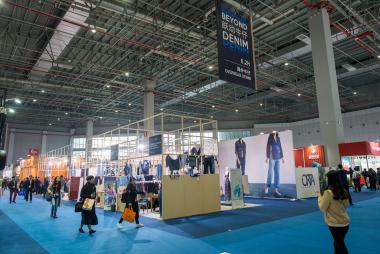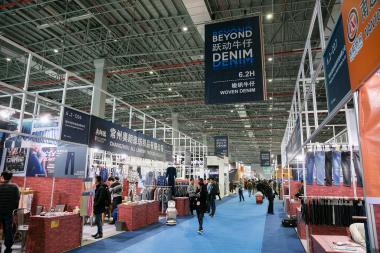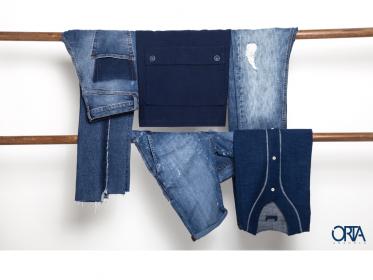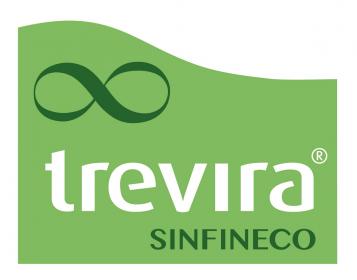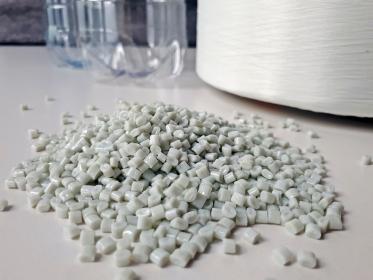Intertextile Shanghai Apparel Fabrics – Spring Edition 2018, 14 – 16 March 2018
As the global textile industry’s most comprehensive sourcing summit for the spring / summer season, Intertextile Shanghai Apparel Fabrics is naturally the ideal place to find the latest developments in product innovation and sustainability. This is especially true in the fair’s Beyond Denim zone, which this edition will feature over 110 exhibitors from China, Japan, Pakistan, Turkey and elsewhere. Adding to a total of some 3,300 exhibitors from around 22 countries and regions, they provide sourcing options for the entire industry, from fabrics for ladieswear, menswear, suiting, shirting, lingerie and swimwear to high-end wool fabrics, original pattern designs, functional & performance fabrics, sustainability products & services, digital printing technologies, garment & fashion accessories and more.
Denim enriched with volcanic ash: the latest innovation from Orta Anadolu
Volcanic ash is not uncommon in beauty products – it is known as Mother Nature’s skin purifier after all, and used as an exfoliator for example – but it is far less common in the textile industry. Orta Anadolu are set to change that with their BIOWARE denim which is enriched with mineralised volcanic ash to create an odour absorbing effect. This technology captures and absorbs odour compounds that would normally pass through the fabric, neutralising bad bacteria while retaining the helpful bacteria that common deodorisers, which contain harsh substances, normally eliminate. This leads to a more environmentally friendly product that is better for the user’s skin.
Orta will also be presenting BIOCHARGE at Intertextile, which, according to the company, is the world’s first denim fabric for muscle wellness. Infused with minerals, Orta state that BIOCHARGE is medically proven to refresh muscles, relieve muscle tension and optimise body balance. They will also present their BOUNCE stretch range, with high elasticity and a ‘street’ style, while CHRONICLE, another in their S/S 19 range, is a blend of heritage and future styles.
US Denim Mills blend tomorrow’s technology with yesterday’s style
Another innovative denim firm exhibiting at Intertextile Shanghai, and another blending old and new, is US Denim Mills. According to the company, their collection at the fair will “harness tomorrow’s textile advances to revitalise the great style visions of the past by adding fashion, comfort, performance and sustainability advantages to authentic denim looks.” This collection includes:
• Selvedge: using the company’s legacy selvedge looms to produce bi-stretch ‘SelvedgeX’ while experimenting with blends of natural yarns and high-tech fibre blends in its ‘HeritEdge+’ range
• Stretch: including ‘Flex 360’ bi-stretch denim with a slight cross-bias freedom, and ‘Modern Stretches’ with a higher stretch range for intense comfort
• SoftWear: advanced finishing treatments for superior soft touch from natural fibre blended yarns and softness-selected weaves
• Sustainable: new additions to the range of recycled and natural ‘GreenEgo’ denims
Kipas Denim step up their sustainability efforts
Well aware of the effect denim production has on the environment, Kipas Denim’s multi-faceted programme to address this is one of the most comprehensive in the denim sector. Their recycled yarn initiative includes recycling waste yarn from the production process, while it also takes waste cotton yarn and blends it with REPREVE® fibres to create an eco-friendly denim fabric. Kipas also uses BCI cotton and organic cotton, and targets each to be 15% and 5% of total consumption, respectively. Furthermore, their Conservablue technology aims to reduce the environmental impact of the dyeing process by eliminating the use of rinsing overflow boxes before and after the indigo dye boxes, as well as ensuring 100% of applied dyestuff remains on the yarn in the rinsing bath.
As well as the overseas offerings, a wide range of domestic denim exhibitors covering all price and quality points will also feature in Beyond Denim. Some of the more notable brands participating include Advance Denim, Black Peony, Guangzhou Foison and Prosperity Textile.
Denim’s ‘next move’ to be debated in INVISTA panel discussion
The market is changing and so must apparel and textile manufacturers. Low prices and discounts are no longer driving sales the way they used to. Today’s consumer wants better quality, appreciates new technology and is evolving their casualwear style. This is the premise behind the INVISTA-sponsored panel discussion which will take place on day 1 of the fair. Titled ‘Denim’s Next Move – New Opportunities to Keep Growing Sales of Jeans and Casualwear at Retail’, participants will learn what consumers really want in jeans and casualwear, the return of chinos and new fabric technologies that are energising casualwear.
The panel will be moderated by Jane Singer, Director and Head of Market Development at Inside Fashion. Panellists will include representatives from Advance Denim, Guangzhou Conshing Clothing Group, Prosperity Textile and Texhong who will share their latest innovations that will help brands and retailers drive sales and profits.
In addition to Intertextile Shanghai Apparel Fabrics, four other textile fairs also take place at the National Exhibition and Convention Center: Yarn Expo Spring, Intertextile Shanghai Home Textiles – Spring Edition, fashion garment fair CHIC and knitting fair PH Value.
Messe Frankfurt GmbH


